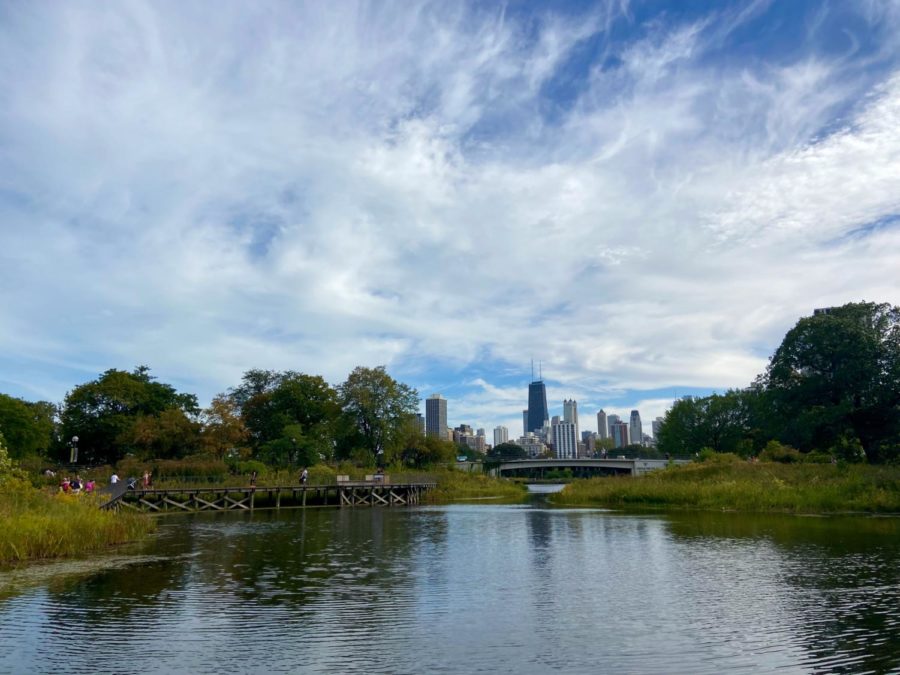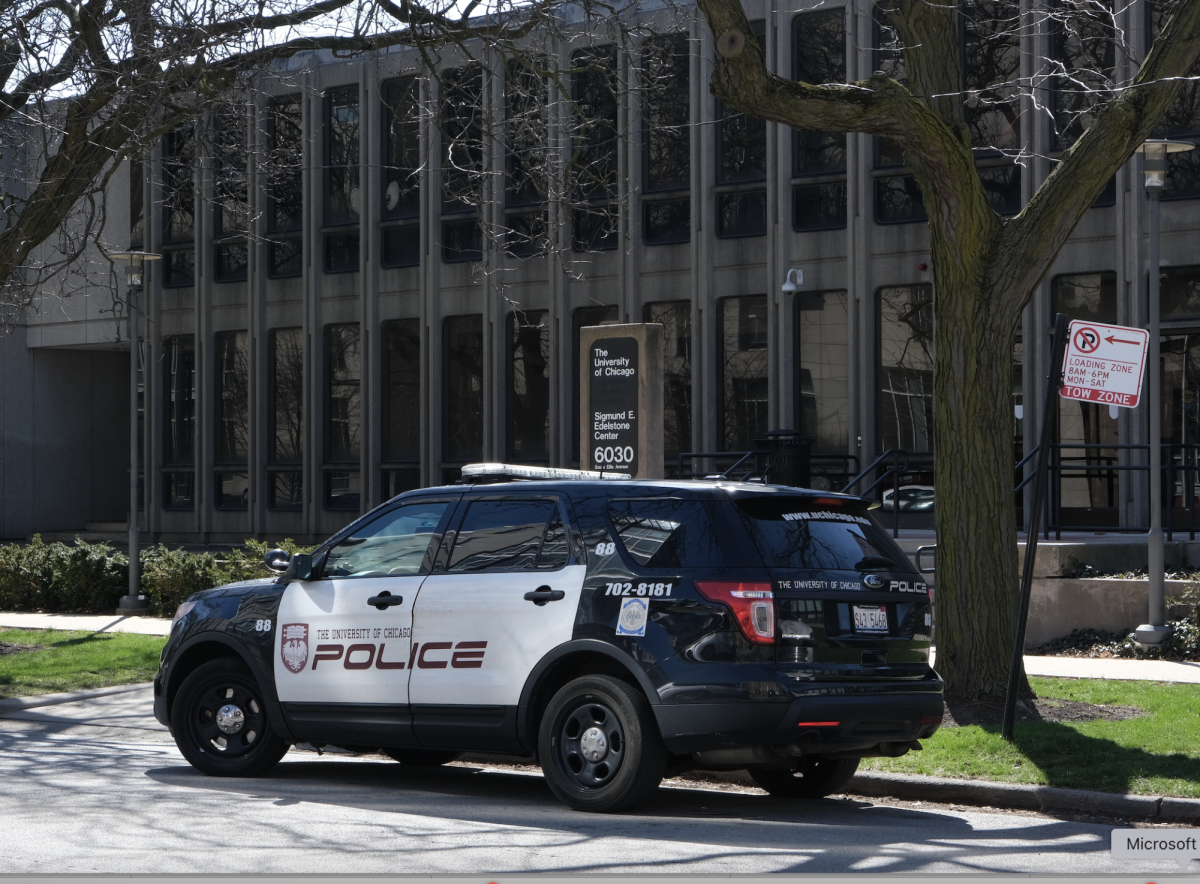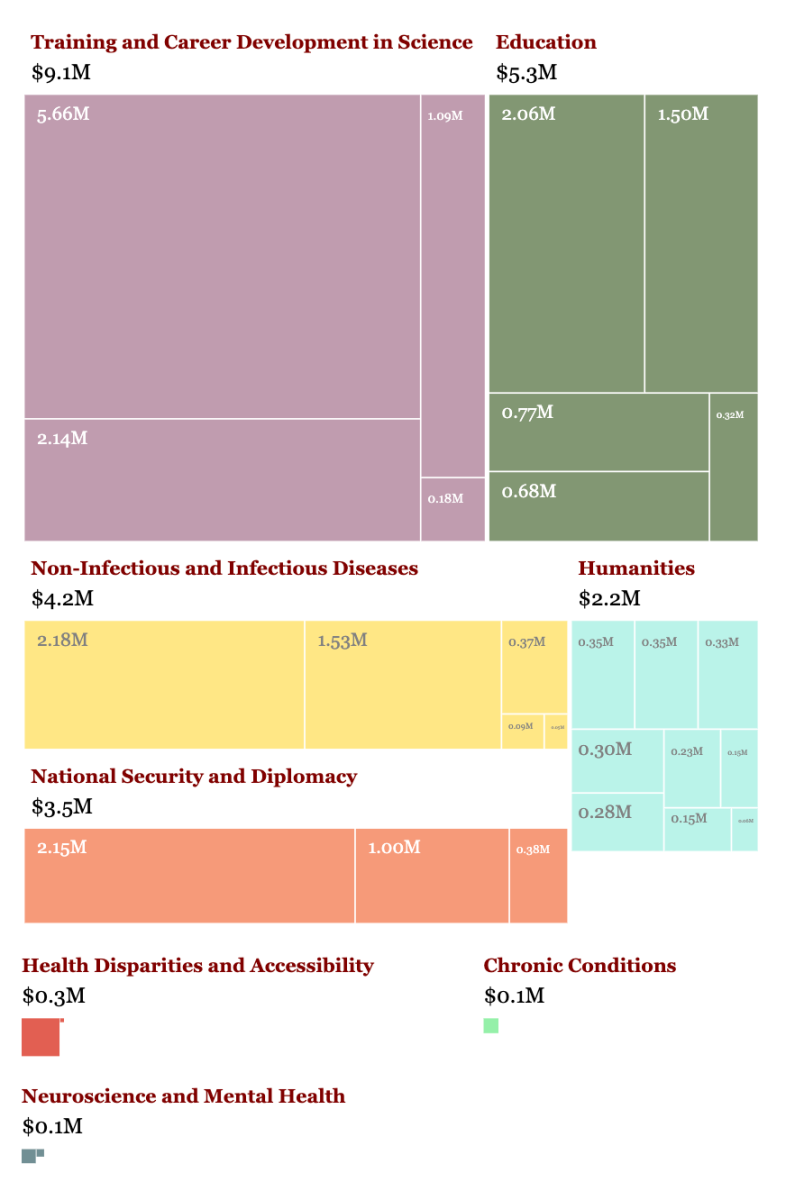Since the Russian annexation of Crimea in 2014, tensions between Russia and Ukraine have been steadily increasing. The recent February 2022 invasion of Ukraine has turned these tensions into outright war. While these events may seem distant to some, for Ukrainian and Russian students at UChicago, the fighting raging halfway around the world is deeply personal.
One student, who asked to remain anonymous for personal reasons, was born and raised in Russia and still has family living there. It has been hard for them to contact family members through apps like WhatsApp due to many companies ending their services in Russia. Though this time has been difficult for them, they have appreciated what the University has done for Russian and Ukrainian students affected by the war.
“[The Office of Financial Aid allowed] freer plans of payment of tuition because there’s some problems with financial transactions…Those things could be negotiated on an individual basis. We had people from the international office reach out to us from the Bursar and some individual professors were trying to handle situations and help us out. I think it’d be great to have continuous support and continuous reminders from the University,” they said.
UChicago announced a plan to support students impacted by the war in Ukraine by providing full-tuition scholarships for undergraduates affected by the invasion; expanding college readiness and preparation classes for Ukrainian students, run in-person and remotely out of UChicago’s Center in Paris; expanding fellowship programs for current students not able to continue their studies in Ukraine; and increasing financial support for current students experiencing financial difficulties.
Similarly, UChicago’s peer institutions, like Northwestern, have created funds to assist students that cannot return home because of “war or civil strife” and have promoted dialogue about the war through panels and events with former government officials, academic experts, and experts on Ukraine.
Though the family of the UChicago student we spoke with has been relatively safe, with access to food and the ability to get messages through to them, the student believes the hardest part of the war is the emotional toll it has taken.
“When this war hit, for me, it was a massive shock because as a kid growing up in Russia, we were always taught we were a superpower but always trying to act on moral grounds… So when the war in Ukraine happened [it was] a massive shock because it’s so senseless,” they said.
Russian-born first-year Dmitry “Mitya” and his family have had a more volatile experience during these last few months. When the war started in February 2022, protests, which Mitya’s family participated in, broke out in Russia. Two days later, Mitya’s family flew out of the country to Istanbul, leaving behind his father, who wanted to stay with Mitya’s grandparents.
Mitya describes his father as being very altruistic, wanting to make sure his family was safe before joining them abroad, but Mitya was able to convince him to buy a ticket out of Russia. However, his father was afraid of crossing the Russian border.
Mitya and his family’s futures are uncertain. The family obtained Israeli citizenship following Russia’s 2014 annexation of Crimea, but the money they had transferred from Russia to Israel can only sustain them for so long. Mitya is considering taking a year off school because of the difficult financial situation his family is in.
“[Putin] definitely stole my childhood [and] my sister’s childhood, my younger siblings’ [childhoods]. He basically destroyed the life of my family. Not only my family, but lots and lots of Russian families,” Mitya said.
The Russian Undergraduate Student Association (RUSA), one of the main Russian-speaking RSOs on campus, has spent a considerable amount of time and effort to provide support and raise money for the Ukrainian people. For instance, RUSA held a fundraiser in March selling bracelets and stickers to raise money for the United National Crisis Relief Fund, collecting almost $1,800. They also put on a charity concert at Woodlawn Tap in April 2022.
RUSA has attempted to cultivate a welcoming and supportive community for Ukrainian students and members of other Slavic communities. Despite this, the student body has noticed that the relationship between Ukrainian and Russian students on campus is unquestionably more tense.
Daryna, who is only using their first name for personal reasons, a first-year student who was born and raised in Ukraine, agreed.
“On campus, there are very subtle and very implicit tensions…[Ukrainians] have a principle: [e]very Russian there is responsible, because every Russian is responsible for…not protesting [the war]. They’re already able to pay taxes for financing the war. A lot of Ukrainian people, especially back home in Ukraine, fully support [this idea] and they cannot stop the hatred,” Daryna said.
One of the subtle tensions Daryna mentioned was that she uses English, instead of Russian, to communicate with Russian students on campus.
Maksym, another first-year student born and raised in Ukraine, also refuses to use Russian when speaking with Russian students, going so far as to call it “the colonizer’s language.”
“[Russians] will still talk about how close our ‘sister nations’ [i.e., former Soviet countries] are, repeating ages-long Russian propaganda…Imperialist thinking is present in pretty much all Russians I have met in my life, and I refuse to be associated with that in any form,” Maksym said.
Additionally, Maksym feels disdain toward Russians because he does not believe this war is solely Putin’s fault.
“All those Russians continue paying taxes which get converted into missiles that hit my hometown. All those Russians continue promoting Russian culture, which their government then uses as a soft power to normalize the country’s image in the world’s eyes… They might tell you they support peace, but what have they ever done to stop him?” Maksym said.
Though Daryna’s immediate family moved to Poland a few years ago for better job prospects, her grandmother and several friends are still living in Ukraine. The town her grandmother lives in is relatively safe, despite explosions that can be heard in cities around an hour away, but her friends’ experiences have been very emotionally difficult.
The scariest thing for Daryna is the thought of returning to Ukraine and realizing that the places she used to know have changed.
“I told my grandma [that] I’m so afraid that when I come back home, it will not be the same. I was not talking about the fucking war. She told me, ‘I promise you, this will stay the same.’ In the summer, I’m just not able to go back home and this hurts really, really [badly]. This is my first time being away from home for so long…I’m craving to go home and just realizing that I won’t be able to do it for god knows how much time,” said Daryna.
Daryna has received an outpouring of support from those around her but mentioned that kind words cannot do much to help her situation. Instead, Daryna wants the University to take a harder stance on the war, including using its platform as an influential university to undoubtedly advocate for and support Ukrainian students and use its political connections to have politicians advocate for Ukraine.
“I am both glad, but also kind of mad, that only by this way, people finally got to know that Ukraine is not Russia, and how strong the Ukrainian nation is,” Daryna said.









